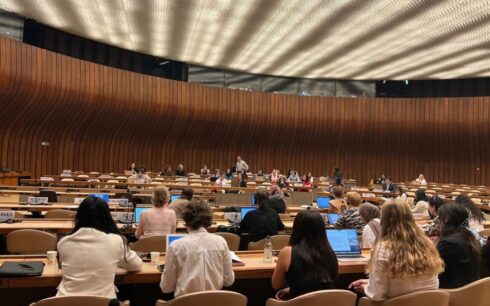NEW YORK — The U.N. Women has recommended that 30 percent of international aid to Afghanistan be dedicated to promoting gender equality and women’s rights, according to a recent report.
The organization emphasized the need for sustained and adaptable funding to strengthen women’s civil society organizations.
“Ensure at least 30 percent of all funding to Afghanistan is dedicated to initiatives explicitly aimed at promoting gender equality and women’s rights, avoiding support for gender-blind projects,” the report stated.
Additionally, U.N. Women called for measures to prevent actions that could inadvertently support or normalize the Taliban’s discriminatory policies. “Implement measures to prevent actions that could unintentionally support or normalize the Taliban’s discriminatory policies, norms, and values,” the report recommended.
The report also stressed the importance of integrating human rights into all actions. “Incorporate human rights, with a special focus on women’s rights, as a fundamental aspect in all humanitarian activities and basic human needs interventions,” it said.
Women’s rights in Afghanistan have faced severe oppression since the Taliban’s return to power in August 2021, according to U.N. Women. The organization noted that the scale and generational impact of this oppression are unprecedented.
This challenge is detailed in the first Gender Country Profile on Afghanistan published since the Taliban takeover, developed by U.N. Women with financial support from the European Union. The profile analyzes the gender equality infrastructure over the past 40 years and how decades of progress have been reversed by more than 70 decrees, directives, statements, and practices introduced by the Taliban targeting the rights of Afghan women and girls.
The profile also examines how setbacks in gender equality are
impacting progress and limiting opportunities across all sectors of development. The deprivation of women’s rights has had devastating, inter-generational consequences. For instance, the Gender Profile indicates that excluding 1.1 million girls from school and more than 100,000 women from university has correlated with a 50 percent increase in maternal mortality risk.
Afghan women are also left with minimal influence over decisions impacting their lives. The Taliban caretaker administration includes no women leaders, and U.N. Women data shows that only 1 percent of women feel they have influence in their communities. Additionally, 18 percent of women report not meeting with other women outside their immediate family in the past three months, leading to severe social isolation.
“Women want the right to make decisions, not just in their homes but in government and other spaces. They want an education. They want to work. They want their rights,” said a 26-year-old Afghan woman who spoke to U.N. Women. She added, “Our unclear future leaves us disappointed. We need to live a better life, especially as women.”
The Gender Country Profile highlights the extraordinary resilience of Afghan women, who continue to serve their communities and advocate for their rights despite the Taliban’s oppressive policies. “Afghan women demonstrate extraordinary resilience. In the face of incredible challenges, women continue to run organizations and businesses and deliver services. We must invest in their resilience. Afghanistan must remain high on the international agenda,” said Alison Davidian, U.N. Women Special Representative in Afghanistan.





